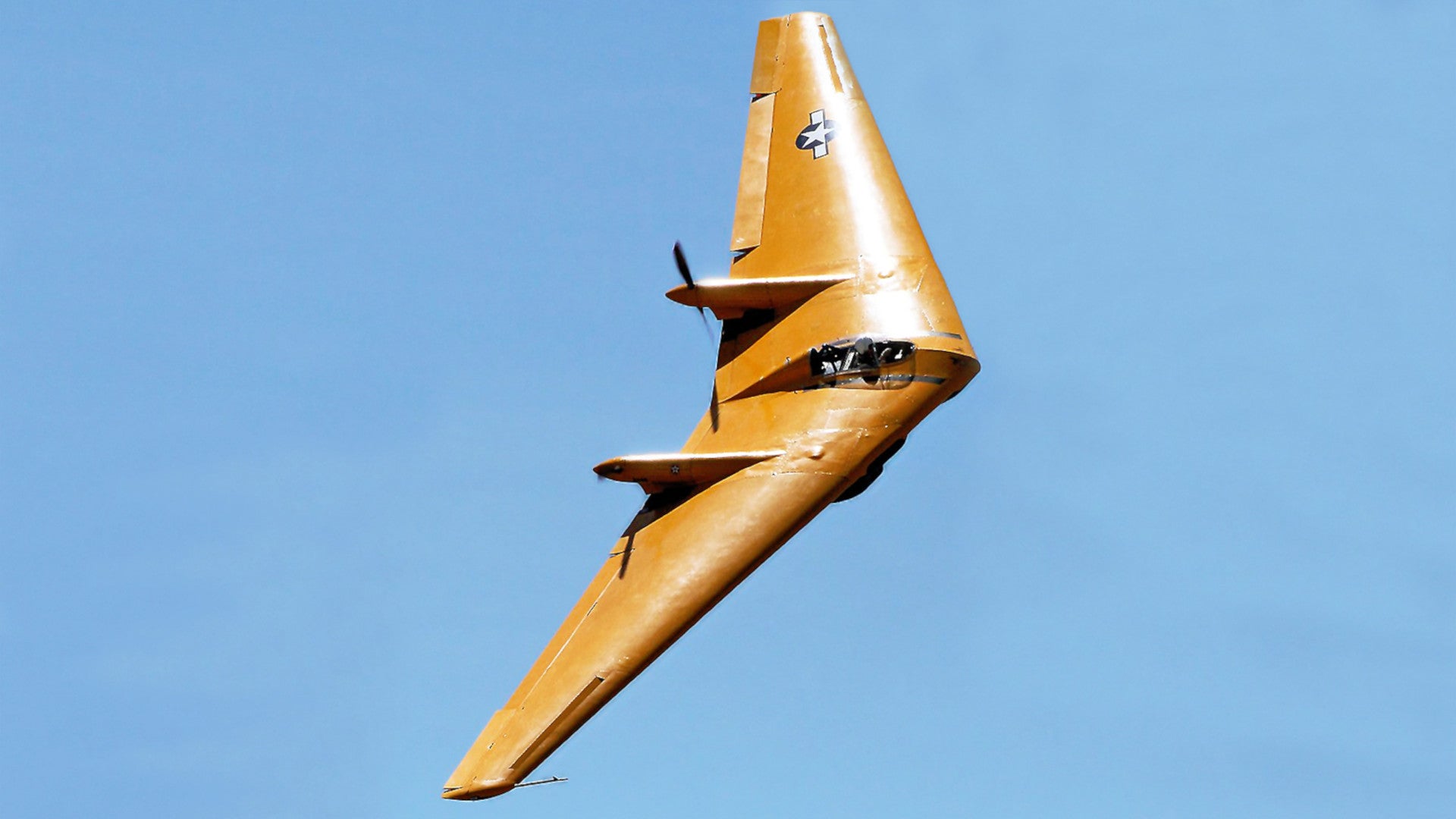Details are still coming in, but a privately owned Northrop N-9M crashed in Norco, California at around 12:10 PM local time. The condition of the pilot is unknown, but the aircraft itself sustained “substantial damage,” according to statements from the Federal Aviation Administration.
The cause or causes of the crash are unknown, but the bright yellow flying wing came down inside the yard at the California Rehabilitation Center, a state prison facility. Though the condition of the pilot is unknown, the FAA and local authorities have said that there were no injuries on the ground as a result of the crash.
“The circumstances are unknown,” the Riverside County Sheriff’s Office wrote in a Tweet. “The NTSB [National Transportation Safety Board] will be conducting the investigation into the plane crash.”
Video footage from news helicopters flying over the crash site an hour after the mishap shows little of the aircraft remaining intact. Unless there are larger parts we are not seeing, the plane appears to be a total loss.
The crash is a major loss for aviation history. First flown in 1942, Northrop’s N-9M, with the “M” standing for “model,” was a test aircraft to support the development of the XB-35 and YB-35 prototype flying wing bombers.
The N-9Ms had a 60-foot wing that was effectively a third-scale replica of the full-size bombers. This smaller surrogate design was made of both wood and metal and had a pair of engines driving pusher propellers, compared to the all-metal XB/YB-35 and its four pusher props. The N-9M was also an evolution of Jack Northrop’s earlier N-1M, which also supported the company’s flying wing work.
Northrop built four N-9Ms, designating them N-9M-1, -2, A, and B. In the late 1940s and early 1950s, the U.S. Air Force canceled the XB/YB-35 program, as well as the development of the improved YB-49. Many of the airframes associated with these projects, including the first three N-9Ms, ended up being scrapped.


Northrop, of course, never abandoned its interest in flying wing designs. Fly-by-wire technology eventually helped mitigate stability issues that made them hard to control. What had by then become Northrop Grumman finally realized the dream of the flying wing bomber when the B-2 Spirit entered U.S. Air Force service in 1997. The company is now in the process of developing its replacement, the B-21 Raider.
Northrop Grumman has also used flying wings and other tailless planforms in the development of advanced drones, including prototype unmanned combat air vehicles, such as the X-47B. Other companies have also experimented with flying wings and similar designs, including on unmanned aircraft such as the Lockheed Martin RQ-170.
But evidence of this earlier work is more limited. Today, the lone N-1M is now in the collection at the National Air and Space Museum. The Planes of Fame Air Museum in Chino, California bought the surviving N-9MB in 1982.
A lengthy restoration process returned it to flying condition in 1993 and it had made regular appearances at the annual Chino airshow and other events since then. In 2006, it suffered a mid-air engine fire, but was able to land safely. Planes of Fame again returned it to flying condition in 2010 and the plane was reportedly flying today in preparation for its next airshow appearance.
Hopefully, the pilot is safe, but it’s sad to think that the historic flying wings that gave birth to the stealth bombers we know today will never be seen slicing through the air again.
Update: 7:45pm EST—
Sadly, the Riverside County Sheriff’s office has now described the incident as “fatal” in a Tweet. The social media post says that there is no confirmation on the number of occupants, but the N-9MB only has room for the pilot.
Update: 5:10am PST—
Here is the full statement from Planes Of Fame:
April 22, 2019 Chino, CA
Planes of Fame Air Museum: Today at approximately 12:00 PM one of our Museum pilots and our N9MB Northrop Flying Wing were lost in an accident in Norco, CA. The flight was being conducted in preparation for the upcoming Planes of Fame Airshow where it was scheduled to fly. At this time details are not known as to the cause of the accident. The NTSB will investigate the accident to determine the cause. To our knowledge no one on the ground was injured nor was there damage to any buildings.
The identification of the pilot, the sole occupant, is being withheld pending notification of family.
The Planes of Fame N9MB, one of four one-third size flying wings built for flight testing in 1944, had been restored over a thirteen (13) year period beginning in 1981. The one of a kind aircraft flew its first post restoration flight on September 11, 1994 and had safely flown several hundred hours since then.
We are deeply saddened by the loss of the pilot and our deepest sympathies go out to his family.
Contact the author: jtrevithickpr@gmail.com
